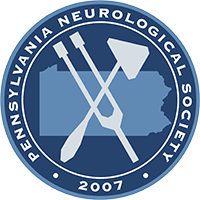Ongoing Advocacy Efforts
Pennsylvania Neurological Society is working with the Pennsylvania Medical Society (PAMED), AAN and National MS society state chapter and is advocating for improvements to prior authorization and step therapy, specifically PA House Bill 1194.
PNS along with AAN advocates at the Hill for drug pricing and access, reducing regulatory burdens, increasing research funding for NIH, BRAIN initiative.
If you have any specific concerns you would like the Pennsylvania Neurological Society to consider, and/or would like to assist us, please contact us.
PNS along with AAN advocates at the Hill for drug pricing and access, reducing regulatory burdens, increasing research funding for NIH, BRAIN initiative.
If you have any specific concerns you would like the Pennsylvania Neurological Society to consider, and/or would like to assist us, please contact us.
Prior Advocacy Wins
- Pennsylvania Neurological Society members, in collaboration with the AAN, advocated for approval of the FAST act that enabled reimbursement of Telestroke evaluation in suburban and urban areas.
- Testimony to the Health Committee, Pennsylvania House of Representatives, House Bill 746: Amending the Generic Equivalent Drug Law by adding safeguards to the substitution process for Biologics, September 2013. Provided key testimony on this bill and educated legislative body. Although the bill did not pass, the education and awareness raised was important and led to many additional conversations about other issues.
- Testimony to the Health and Human Services Committee, Pennsylvania House of Representatives, House Bill 98: Amending the Generic Equivalent Drug Law by adding safeguards to the generic substitution process for antiepileptic drugs, May 2008. The bill passed Health and Human Services Committee, but did not pass the legislature. However, work done provided legislature education and important exposure to us as leaders and experts in the state.
- SB 137 Speech-Language and Hearing Licensure Act: Would have allowed audiologists to perform intraoperative monitoring of the central nervous system, spinal cord and cranial nerve function without physician oversight. It also would have allowed audiologists to perform non-intraoperative monitoring neurophysiological tests, including EMG. PNS was unquestionably the leader that stopped the bill from going forward. Of note, it initially passed the Senate as written. PNS, with the help of the PA Medical Society, successfully reversed the Senate and stopped it.
- PA Prescription Drug Monitoring Program (PADMP) legislation- Major success:
Background: SB 1180 creates a Prescription Drug Monitoring program across PA. Its purpose is to create a statewide database to ensure that patients do not doctor shop for narcotics.
The problem for us:
1) it included all schedule V drugs, including Vimpat, Lyrica, and Potiga. Thus patients who are treated for epilepsy with these meds would necessarily be included.
2) It would force prescribers to delve into the database when prescribing these medications for the first time even if the provider did not feel there is any need, thus wasting clinical time.
As a result, we educated legislators, the community (op-ed piece), and our fellow non-neurology colleagues that a blunt scalpel approach to manage narcotic abuse is not what is best for patients or physicians. Of note, while the PA Medical Society specialty board (particularly neurology) voiced support of our concerns, neurology served as a lead advocate in Harrisburg. Believe it or not, we had antagonist stakeholders to our concerns. Our requested amendments were not a “given.” Nonetheless, both the Senate and House approved the bill with amendments we could agree with:
1) Physicians are no longer obligated to log into the database unless they feel it’s clinically necessary.
2) The oversight board created for this program will have the ability to determine what drugs should be included, such as abuse potential.
**Unfortunately, the oversight board did not address our needs timely. As a result, we helped drive a legislative amendment that forced schedule 5 epilepsy drugs out of the PADMP. The bill was HB 395. PNS succeeded; it was passed. - PNS worked with PA Medicaid, changing their policies such that Medicaid patients have improved access to botulinum toxin for spasticity. Initial policy required patients to have a discussion about surgery prior to getting Botox. We got that changed.
- PA Medical Society, passed 2 resolutions specific to neurology:
- AED substitution: PA Medical Society recognizes this class as one of the only medication classes that generics should not be interchanged without physician approval.
- Needle EMG: PA Medical Society recognized that needle EMG is the practice of medicine, to be performed solely by physicians.
- AED substitution: PA Medical Society recognizes this class as one of the only medication classes that generics should not be interchanged without physician approval.


